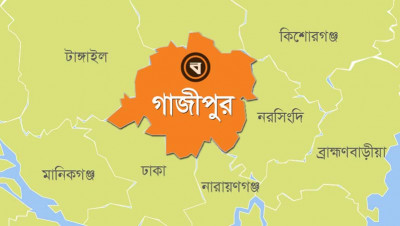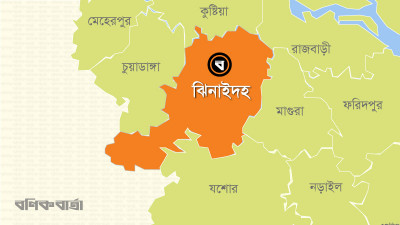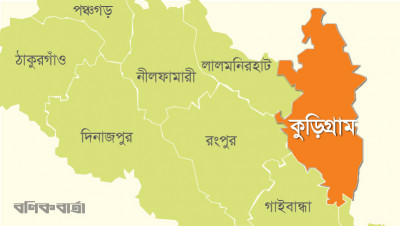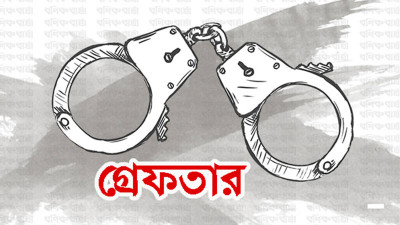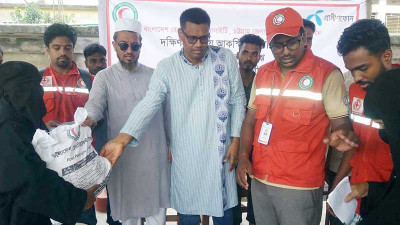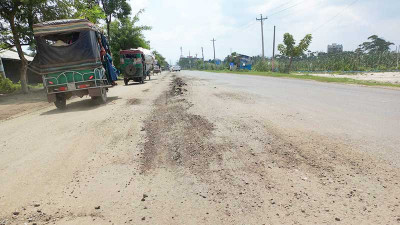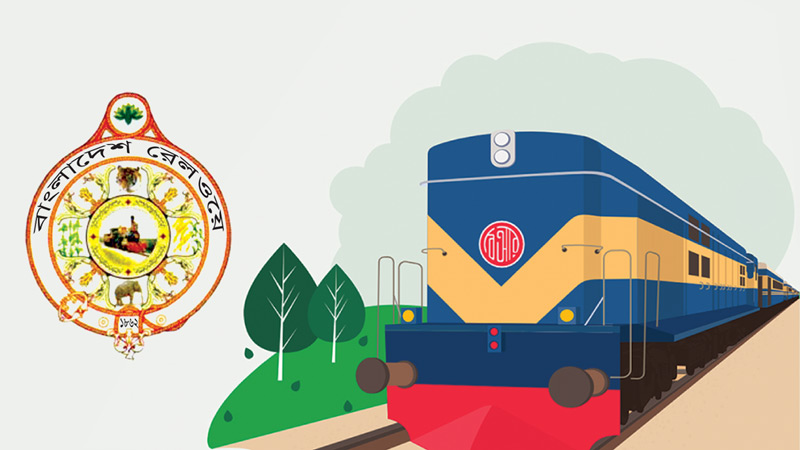 Bonik Barta illustration
Bonik Barta illustration Fares for all passenger trains that cover more than 100
kilometers of distance are set to increase. Mainly, the increase is taking
place with the abolition of the concessional facility for travelling more than
100 kilometers. Besides, step has been taken to boost the income of Bangladesh
Railway by increasing the ticket prices for the extra coaches attached to the
stipulated carriages of the trains, say individuals concerned.
Bangladesh Railway has already received the approval from the
top level in this regard. Sohoz, the private operator involved in ticket
management, has already been given the account of station to station commercial
distance to implement the increase. At the same time, a process is underway to
raise the fares manually (offline). According to the sources concerned at
Bangladesh Railway, it is highly likely that the increased fares will come into
effect from April 1.
Railway officials are of the opinion that though the number of
passengers increased in recent years, the revenue of the government body did
not increase proportionately as rail tickets are cheaper as compared to road
and water transports. Railway cannot get of the losing cycle due to high spending
against low income. Train fares were last increased in 2016. Since then, the
operating costs of the organization, including fuel and spare parts and salaries
of the employees, have increased, but the ticket prices have not gone up that
much. Initiatives were taken on few occasions to rise the fares but could not
be implemented due to political consideration despite incurring loss.
As per Railway sources, the expenditure of the organization
stood at Tk 33.07 billion in 2022-23 fiscal year. During the same period, it
earned Tk 17.83 billion. That means, Railway spent Tk 15.24 billion more than
it earned in the last fiscal. The government organization saw some profit only
in 1998-99 fiscal. In that year, it earned a net profit of Tk 185 million. After
that Railway has been incurring loss continuously for two decades and a half. Under
such a situation, the organization is going to take a multifaceted approach to
enhance its income. Apart from increasing fares, it is now paying attention in expanding
routes and transporting goods.
Earlier, Bangladesh Railway increased fares in 2012 and 2016. In
October, 2012, it increased the fares by minimum 5 percent and maximum 110
percent. In February, 2016, fares were up by 7-9 per cent. Nearly seven and
half years after that in late 2023, the Railway took an initiative to increase
its revenue through imposing charges on use of the bridges and viaducts. Now,
initiative has been taken to withdraw the concessional facility for travelling
over 100 kilometers. And, additional charges for extra coaches will be levied
based on classes. Railway officials concerned believe that with these measures,
the income of the organization will be up by Tk 3 billion every year.
“The government already invested Tk 1 trillion in the development
of the rail sector. There are plans to take the rail services to international
level through implementing different projects,” a top official of Bangladesh
Railway’s operations department told Bonik Barta on condition of anonymity.
“But, the government is in a bit of a dilemma about the fare
increase despite the fact that the loss incurred by Railway is increasing every
year. Therefore, the Railway is trying to enhance its revenue by withdrawing
the existing concessional facilities,” he said.
The concessional facilities for distance-based rail fares
started in 1992. People concerned say that transportation of passengers and
goods at that time was below the capacity. The concessional facilities based on
distance and section were introduced to attract people. The section-based
concessional facility was withdrawn in 2012. Due to the distance-based concessional
facility, the prices for long distance transportation of passengers and goods remains
low. Apart from new Dhaka-Cox’s Bazar rail route, concessional facility applies
to every route over 100 kilometers. For 101 to 250 kilometers, the concessional
rate is 20 percent while it is 25 percent for 251 to 400 kilometers.
According to Bangladesh Railway authorities, the non-air-conditioned
bus fare from Dhaka to Chittagong is Tk 680. The same standard railway ticket
from Dhaka to Chittagong costs Tk 345. The ticket prices for local, mail or express
trains are from Tk 120 to Tk 150. As a result, services face extra pressure
alongside black-marketing of tickets, but the Railway is deprived of deserved
revenue. In October, last year, the Railway started imposing portage charge on
the use of its bridges and viaducts, increasing its revenue.
Sometimes, extra coaches are attached to the stipulated number
of carriages of a train to meet the demand of private and public organizations
as well as individuals. It requires more fuel and people. The Railway can earn
more if there is demand in both ways. In cases of extra coaches, additional 20
percent for Shovon and 30 percent for higher classes will be added.
On February 13, the Ministry of Railways made a proposal in
this regard for the prime minister. Railways Minister Zillul Hakim and
Secretary Dr Humayun Kabir signed the proposal. On March 2, Prime Minister
Sheikh Hasina approved the proposal.
When approached for comments, Bangladesh Railway Chief
Planning Officer Salimullah Bahar told Bonik Barta, “The train fares in
Bangladesh are way cheaper in accordance with standards and services. The
Railways incurs loss although people get benefitted. It is essential to bring
the rail fares to the level of bus fares to make the Railway more dynamic. But,
for the time being, principal fares will not be increased, rather process is on
to enhance the revenue through withdrawal of the existing concessional
facilities. It will be possible to reduce the loss by increasing revenue
gradually through implementing the modernization projects.”

